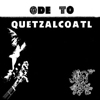 A lost gem of private '60s psychedelia, Dave Bixby's debut solo effort is a lonely affair to be sure. With only acoustic guitar in hand, the songwriter penned this album in about a month in reaction to a year of drug abuse. Having filled his head with plenty of acid, the songs here serve as an intimate portrait of an unhinged victim of counterculture.
A lost gem of private '60s psychedelia, Dave Bixby's debut solo effort is a lonely affair to be sure. With only acoustic guitar in hand, the songwriter penned this album in about a month in reaction to a year of drug abuse. Having filled his head with plenty of acid, the songs here serve as an intimate portrait of an unhinged victim of counterculture.
"Drug Song" fittingly opens the record, serving as a lament for the mind Bixby believes himself to have lost. With instantly memorable lyrical and melodic content, the spare production here fits seamlessly in with the overall feel of the record. This is downer-folk at its best, as Bixby croons a lyric of loss: "Along in the garden/I've lost my mind." It's eerie and off-putting enough that no one would second guess it.
The strength of the album is its ability to immerse the audience in the dark mood that Bixby surely was undergoing at the time. Painfully honest and relentlessly sad, it remains as alluring as watching a building get smashed to the ground; there is, of course, beauty in destruction.
Each track is at once gentle and raw, subtle and apparent. "Mother" is an apology letter to Bixby's mother, whose attempts to help him find God proved fruitless until, of course, Bixby had undergone the proper mental agonies to seek it out himself. It is a regretful offering that seems steeped in personal meaning for the singer. The hollow vocal production only makes it that much more touching. "Open Doors" opens with extended guitar work weaving shades of grey before slipping into a dark folk ballad whose true effect is buried far beneath the lyrics themselves while "666" is, suprrisingly, the most upbeat number here, though that's a highly relative statement.
Rumor has it that Bixby was a member of a cult called "The Movement," and that this album was essentially put together for it. With as deep a history as this, it is no surprise that originals often go for over $2000, making it a private press legend among collectors of Xian folk. Finally properly reissued and available to the masses again, the album has never sounded better and, grim though it may be, this is strong material and one of the finest examples of its style. It is easily about as lonely and haunting as they come.
samples:
Read More

